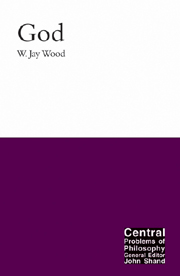Book contents
- Frontmatter
- Contents
- Introduction
- 1 Design arguments
- 2 Cosmological arguments
- 3 The ontological argument
- 4 The moral argument for God's existence
- 5 Religious experience and cumulative case arguments
- 6 Religious belief without evidence
- 7 The problem of suffering
- 8 The nature of God
- Conclusion
- Notes
- Bibliography
- Index
5 - Religious experience and cumulative case arguments
- Frontmatter
- Contents
- Introduction
- 1 Design arguments
- 2 Cosmological arguments
- 3 The ontological argument
- 4 The moral argument for God's existence
- 5 Religious experience and cumulative case arguments
- 6 Religious belief without evidence
- 7 The problem of suffering
- 8 The nature of God
- Conclusion
- Notes
- Bibliography
- Index
Summary
In 1654, eight years before his death, the brilliant French mathematician, scientist and philosopher Blaise Pascal had a powerful religious experience that lasted two hours and has come to be known as “the night of fire”. From roughly 10.30pm to 12.30am, Pascal claims to have encountered God. Ever the scientist, Pascal attempted to write down what was happening to him during the experience. What he managed to write down is as follows:
Fire
“God of Abraham, God of Isaac, God of Jacob,” not of the philosophers and of the learned.
Certitude, certitude, feeling, joy, peace.
God of Jesus Christ.
God of Jesus Christ.
Thy God and my God
“Thy God shall be my God.”
Oblivious of the world and of everything, except God.
He is encountered only by the way taught in the Gospel.
Greatness of the human soul.
Just Father, the world has not known Thee, but I have known Thee.
Joy, joy, joy, tears of joy.
I am separated from Him.
“They have forsaken me, the fountain of living waters.”
My God will you leave me?
Let me not be separated from Him eternally
This is the life eternal, that they know thee, the one true God, and the one Thou has sent, Jesus Christ.
Jesus Christ.
Jesus Christ.
I am separated from Him, I have fled Him, renounced Him, crucified Him.
Let me never be separated from Him.
He is only preserved by the ways taught in the Gospel.
Renunciation, total and sweet. […]
- Type
- Chapter
- Information
- God , pp. 97 - 132Publisher: Acumen PublishingPrint publication year: 2010

